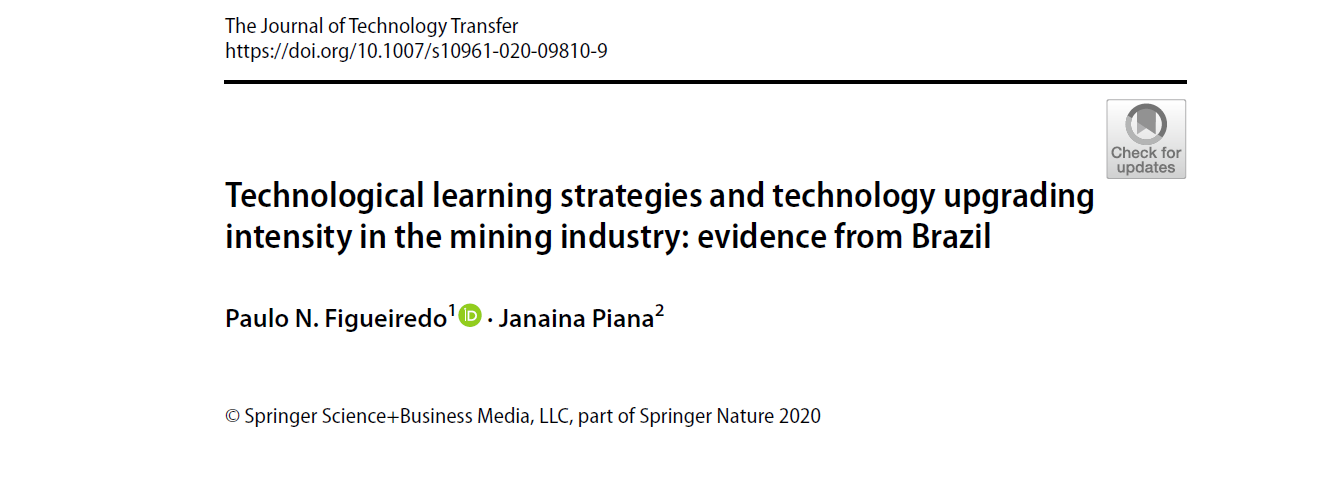
Despite exhaustive research on technology upgrading in firms from emerging economies – latecomer firms – we still know little about micro-level learning strategies underlying technological innovation capability accumulation, also known as technology upgrading intensity, particularly in natural resource-intensive industries. Through an empirically grounded study of Brazil’s mining industry, which holds a globally leading technological and market position, we found that: (1) leading firms implemented technological learning strategies as responses to changing windows of opportunity (demand, technological, institutional, and idiosyncratic problems); (2) these technological learning strategies manifested in various ways from imitative and defensive to offensive with elements overlapping over the technology upgrading process, involving two forms of knowledge inputs: ‘doing, using and interacting’ and ‘science, technology and innovation’, which were operationalised through various learning mechanisms; (3) the use of these learning mechanisms changed qualitatively over time affecting firms’ technology upgrading intensity positively. Thus, we further the understanding of latecomer firms’ technology upgrading by providing in-depth empirical insights through a comprehensive approach to innovation capabilities and learning strategies in an under-researched natural resource-intensive industry in a middle-income resource-rich country.
Figueiredo, P.N. & Piana, J. (2020). Technological learning strategies and technology upgrading intensity in the mining industry: Evidence from Brazil. Journal of Technology Transfer 45: 1-31. DOI: https://doi.org/10.1007/s10961-020-09810-9